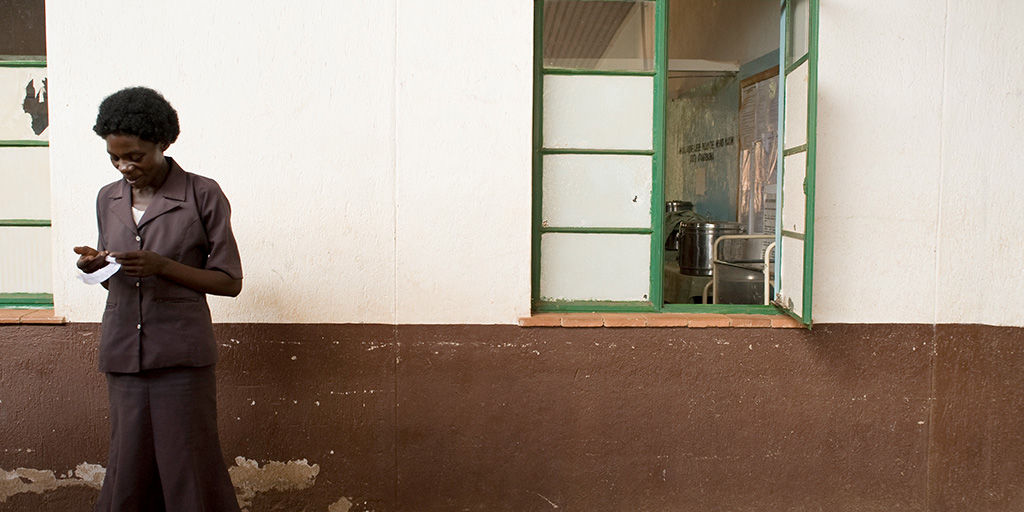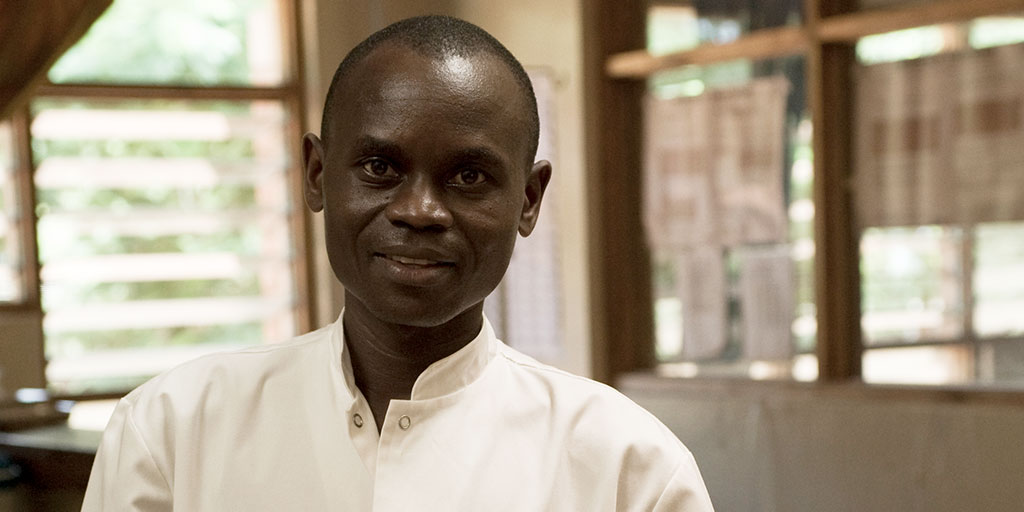Adopt-a-Career – educational sponsorship for hospital staff

From the very beginning Pro Phalombe has invested into the infrastructure of the hospital Phalombe and has managed some major projects. An analysis of our work in Malawi set out the basis for the planning of new projects. After discussions with the hospital board it was decided in 2011 that a separate educational trust was needed: Adopt–a-Career was born.
Project budget
An amount of € 32 000 per year could be spent on this much needed project.
Goals of project
- Staff training
- Staff bonding (by means of bonding contracts to the hospital)
- Increased quality in health care at the hospital
- All departments are involved (Physicians, Care, Caretraining, Administration)
- The running of the hospital routine must not be impaired through absent staff being enrolled in the training program.
Selection of candidates
At least once a year interviews are carried out with applicants (pictured above is the interview panel with Mrs. Sabina Sesay, Mr. Basikolo, Mr. P. Machado and Dr. Dalitso Zeka).The first candidates were interviewed in November 2011. In principle every member of staff is welcome to join the scheme, provided he or she adresses an application with a full curriculum to the committee. After a successful interview the applicant has to undergo a medical exam which is to certify that his state of health is sufficient for the vocational training. Included in this is also a HIV Test. If he tests positive it becomes mandatory for him to undergo a retroviral therapy in order to get an educational grant. This procedure has become standard in Malawi for various reasons.
Pro Phalombe's Adopt-a-Career-Program graduates three midwife technicians

Doreen Khomani, Eric Manjolo and Sostén Makwinja
By Ethel Chimaliro
Adopt-a-Career Training Program at Holy Family Mission Hospital has done it again. On 8th April 2016 three nurses graduated from the Holy Family College of Nursing. The Nurses are; Doreen Khomani who was a Hospital Cleaner, Eric Manjolo Patient Attendant and Sosten Makwinja who was working as a Ward Clerk.
Go out there and serve the community by giving them quality nursing care' and please remember to thank the donors who supported you. They supported you in kind and you give back community quality health services with love ... This was the message from the Guest of the Honour at the Graduation Ceremony His Grace the Archbishop of Blantyre Archdiocese, Thomas Luke Msusa.
The ceremony was attended by: CHAM officials, Ministry of Health, Nurses & Midwives Council of Malawi, Holy Family Hospital & College Board of Directors, Archdiocese Health Commission just to mention a few.
Bravo Pro Phalombe Association and keep up the good work!
Possibilities for diplomas
Nursing school
The basic education takes 3 years (diploma in nursing) and can be completed in Phalombe. Followed by a higher college education of 2 years duration (degree in nursing). Thereafter comes the academic part (bachelor in nursing) of 2 years. Next to this are various training courses offered in community health, mental health etc.
Physicians
Recently introduced, medical assistants which have no formal academic education can study at the Medical University of Blantyre to recieve a certificate in clinical medicine (6 years are equivalent to a medical degree without maturity). Apart from this there are courses for different diplomas in special fields to obtain (Surgery, Orthopaedy, Anaesthesia). These qualifications take between 2 to 4 years to complete.
Administration
Schooling in bookkeeping, management etc. (Certificate of Accountancy, Chartered Accountant, Certificate in Hospital Management)
Summary and outlook
The project, Adopt-a-Career, has been welcomed in Phalombe with great enthusiasm. Although the candidates have yet to prove how well they will fare in the final exams. The challenge for us in this project is clearly foreseeing which educational bodies offer which courses at what prices. The financial transactions are done in cooperation with a local company which settles the accounts directly with the schools. This is done in order to avoid the possibility that the hospital board could use these designated funds for other purposes. After all they would have the authority to do so.
Read more about this (German) NEWS 2012.

